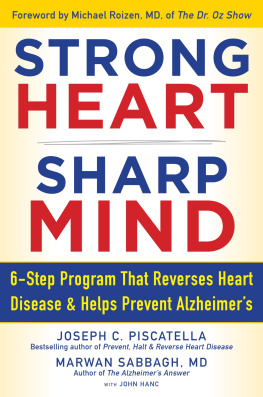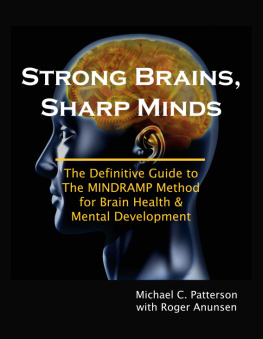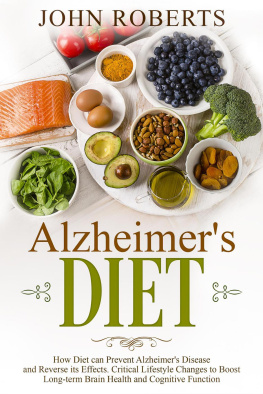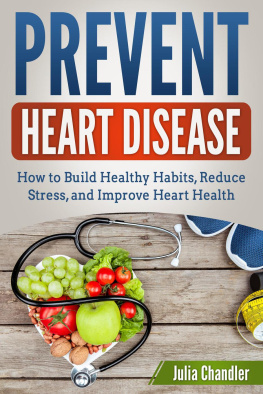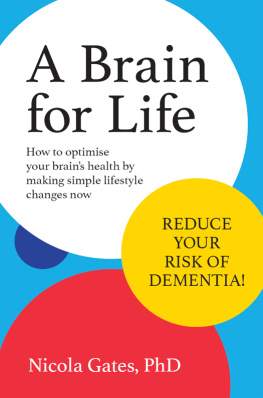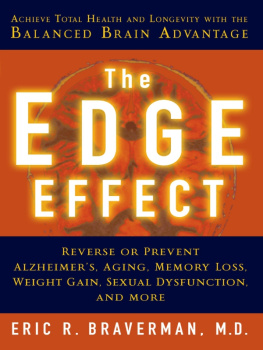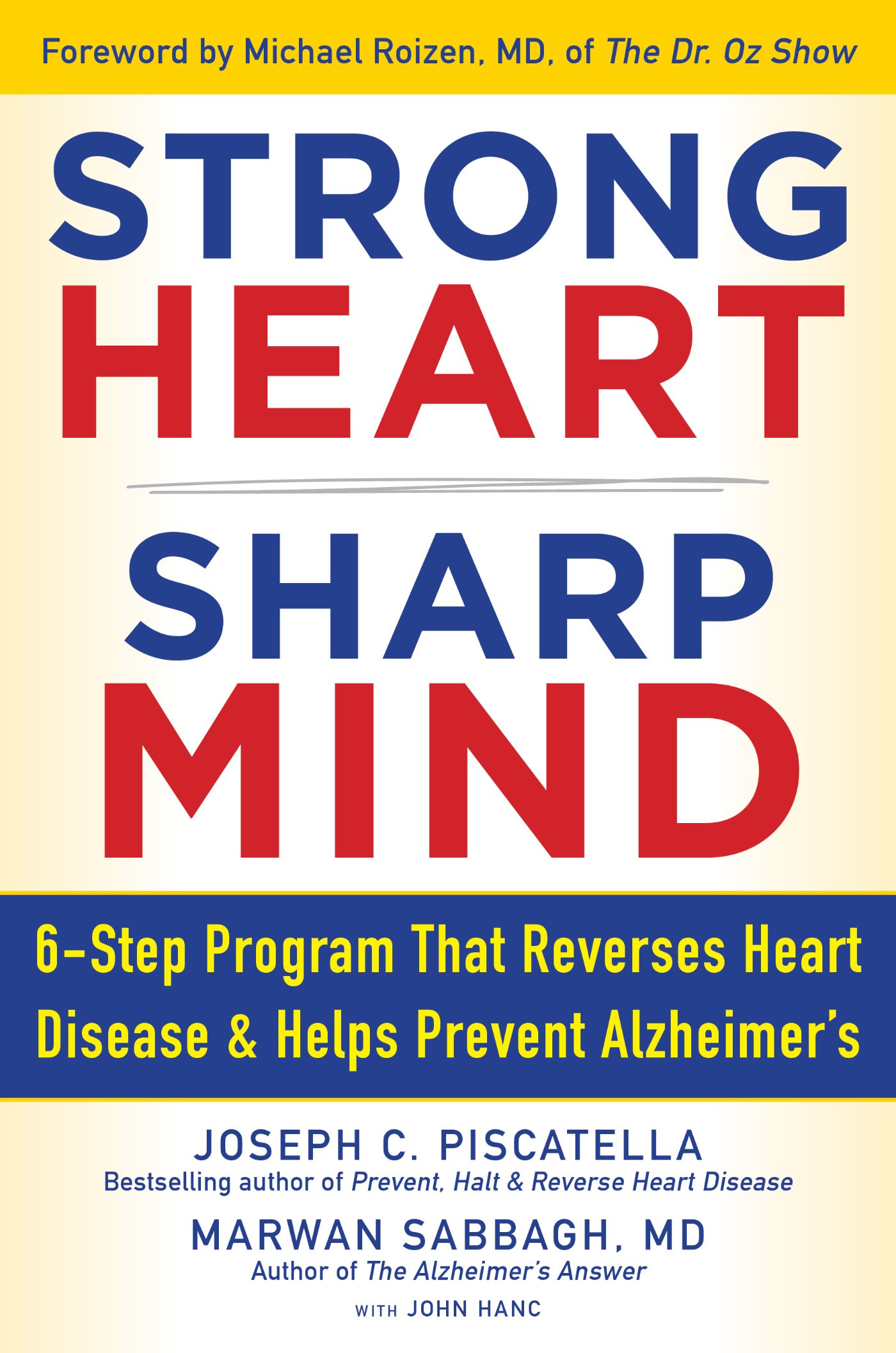
Strong Heart, Sharp Mind
6-Step Program That Reverses Heart Disease and Helps Prevent Alzheimers
Joseph C. Piscatella and Dr. Marwan Sabbagh, MD
with John Hanc

www.humanixbooks.com
Humanix Books
STRONG HEART, SHARP MIND
Copyright 2022 by Joseph C. Piscatella and Marwan Sabbagh, MD
All rights reserved
Humanix Books, P.O. Box 20989, West Palm Beach, FL 33416, USA
No part of this book may be reproduced or transmitted in any form or by any means, electronic or mechanical, including photocopying, recording, or by any other information storage and retrieval system, without written permission from the publisher.
Humanix Books is a division of Humanix Publishing, LLC. Its trademark, consisting of the words Humanix Books, is registered in the Patent and Trademark Office and in other countries.
Disclaimer: The information presented in this book is not specific medical advice for any individual and should not substitute medical advice from a health professional. If you have (or think you may have) a medical problem, speak to your doctor or a health professional immediately about your risk and possible treatments. Do not engage in any care or treatment without consulting a medical professional.
ISBN: 9-781-63006-193-7 (Hardcover)
ISBN: 9-781-63006-194-4 (E-book)
To my wife, Bernie, my most constructive critic, ardent supporter, and best friend.
The journey with her has been a gift from God.
J. C. P.
To the love of my life, Ida, whose patience, love, and undying support carry me and inspire me.
M. S.
Contents
By Michael Roizen, MD
W e all live in a world of wires and medical treatments. Huh, you say? Whats the connection between wires and treatments? Well, hear me out.
Wires connect our computers central processing units to our monitors. In braces, wires help shift the position of teeth. On skyscrapers, they keep window washers from falling. In bras, they do the same for breasts. Even in a society with cell phones and wireless internet access, we still rely on wires for so many things. Strip a house or new building of its siding, drywall, and insulation, and youll see a labyrinth-like system of wires that snakes through the framing to supply power and internet connections to every room. Everything flows in and out of a central stationyour fuse boxbut ends with you connecting something, whether it be a light, a TV, or a cell phone charger. Without a strong power source, your house would merely be a three-bedroom, two-and-a-half-bath turtle shell. Your anatomical fuse boxyour brainhas the same kind of responsibility. But your brain and its parts, in the Rodney Dangerfield sense, get no respectuntil they need treatment.
In fact, heartsthe other power sourceget all the attention. No one sings, I left my brain in San Francisco. No one exchanges brains on Valentines Day. And when was the last time you ever played blackjack with a queen of cerebellums?
As for treatments, thats how we in medicine are trainedthat is, how to retrain a patients left arm to function after a stroke, how to take away the keys after youve lost the ability to drive safely, or how to treat a heart attack or chest pain. In medical school and residencies, we doctors have largely been trained to identify and treat disease. It is the same for your brain and your heartwe in America (and all the developed world) see our doctors about our heart or our brain when something has happened to their function.
Ironically, we medical providers are compensated much better for treating disease than for preventing itit is more lucrative to put a stent in a blood vessel in a heart or in a blood vessel to the brain than to teach you how to prevent that heart attack or stroke to begin with.
Now, youd think that as someone who ran a large set of operating rooms and intensive care units, thats how Id thinkthat is, about treatments. But the most important thing about avoiding days in the ICU postsurgery is staying physiologically young, having a RealAge many years younger than your calendar age. And the key organs to take care ofto prevent disease or even reverse itare your brain and nervous system and your heart and cardiovascular system. The amazing thing Joe Piscatella and Dr. Marwan Sabbagh show in this book is that the same six key wellness strategies for keeping your brain healthy also prevent heart disease. (No, they didnt talk about alcohol, but few things that are good for one organ arent good for preventing disease and the need for treatment of the other organ.)
For twenty years, I have held a conference eponymous with my name focused on wellness, healthy aging, and longevity. Concurrent with these conferences, wellness, healthy aging, and longevity have been growing exponentially. It makes sense, from a policy and public health standpoint (and for you as an individual), to prevent disease rather than treat it. Thats precisely what these conferences teach health professionals and the laypeople who participate.
And while I have been such a strong proponent of making your RealAge younger with healthy choices (so much so that I wrote several bestselling booksRealAge and You: The Owners Manualand have served at the Cleveland Clinic as its first chief wellness officer), I am envious of the great way Joe and Marwan put this book and the brain-and-heart prevention plan together. Publications from Medicare database studies, the Nurses Health Study, the Health Professionals Follow-Up Study, and the Alameda County and Whitehall and Swedish Mens studies (and I could go on for a full page) indicate that 75 percent of all diseases after age eighteen are preventable through simple lifestyle choices. And maybe more than 50 percent of dementia and 80 percent of arterial heart diseasethose are diseases of the wiresneed no treatments if you make those simple lifestyle choices Joe and Dr. Sabbagh detail in this book.
Heart attacksdespite all the efforts and despite the sizeable reduction of mortality from treatment in the past three decadesare still the leading cause of death. And dementia is epidemic and increasing. But beyond the prevention of heart disease, we have begun to crack the secrets of the brain and preventing brain disease. The brain was largely held as sacred and untouchable until recently. The degenerative diseases of the brain were considered to be unidirectional and terminal. But Dr. Sabbagh and his colleagues discovered that the brain is much more dynamic and its diseases much more preventable than previously thought. There is much more in common among the wires of the heart and brainwhen you prevent dementia, you prevent heart disease, whether by social connections and passions (and other stress-reduction programs), physical activity, food choices that taste great, toxin avoidance, or good sleep habits.
Joe Piscatella and Marwan Sabbagh, MD, link wires and treatments in this book. They detail in Strong Heart, Sharp Mind that the same thing that keeps the wires functioning reduces the need for treatment: prevention. And probably surprisingly, they show that whats good for keeping your heart pumping also keeps your memories and passions alive. They give you a really great plan to follow. This book can help many and hopefully will help you and yours for years to come. Buy a copy for each and all in your family; Im going to encourage my patients to do so. It is that important and that great a plan.
Next page
